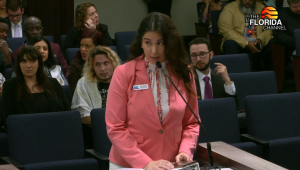Florida Construction News staff writer
A new bill introduced in the Florida state Legislature this week aims to ease restrictions on the working hours of Florida teenagers, coinciding with a larger push to address illegal immigration.
The proposed legislation (SB 918) seeks to amend current state rules that limit the number of hours 16- and 17-year-olds can work during the school year. Under the proposal, the state’s regulations would be relaxed, allowing these teenagers to work longer hours and eliminating the required meal breaks currently in place. If the bill passes, the revised rules would be enacted by July 1.
At present, minors aged 16 and 17 in Florida are prohibited from working more than eight hours per day and are restricted from working past 11 p.m. or before 6:30 a.m. on school days. Additionally, they cannot work during school hours unless they are enrolled in a career education program.
The new bill would also provide exemptions to existing work hour restrictions for 14- and 15-year-olds who are homeschooled, enrolled in virtual school, or have completed their high school education with a diploma or GED.
“Parents know their kids best,” Collins said during a Tuesday meeting of the Commerce and Tourism Committee, where the bill passed with a 5-4 vote. “I can promise you that, even though I was challenged, my mom would have smacked me with a flip-flop if my academic grades had suffered. That’s very much the same thing in most families.”<
Collins also assured that all workers, including minors, would remain protected by the Fair Labor Standards Act, which prevents hazardous working conditions for young employees
However, more than a dozen people testified against the bill in person, with others submitting written opposition. Critics speaking at the meeting said the bill could lead to the exploitation of young workers, using them as cheap labor to fill gaps left by adults dissatisfied with low wages and poor working conditions.<
Echo Nova is concerned 16 and 17 year old workers would be able to be scheduled for unlimited hours, over night shifts and without breaks and that teens as young as 14 are included in the legislation.
“Fourteen, ok. For most that means its their first year of high school,” she said. “We don’t let kids this young get a drivers’ licence, and we’re worried about their social media consumption so why are we ok treating them like adults just because they might be home or virtual schooled?
“Where in the bill does it say that parental rights have to be secured before employers can overwork these teens?”
The bill must be approved by two more committee before it gets to the Senate floor for final approval

